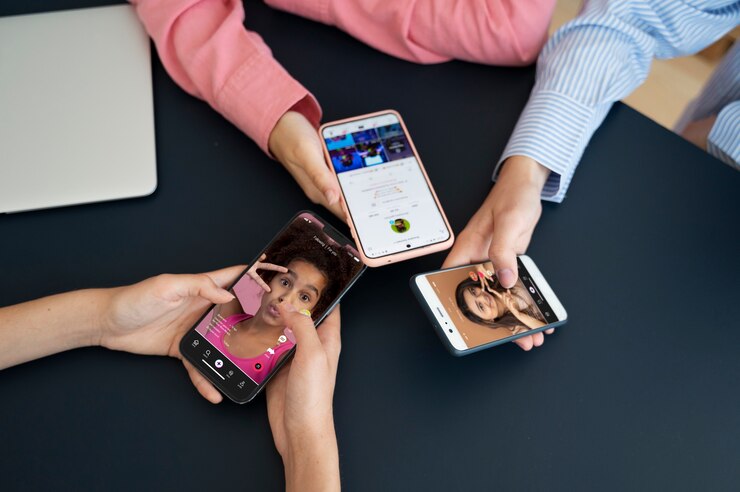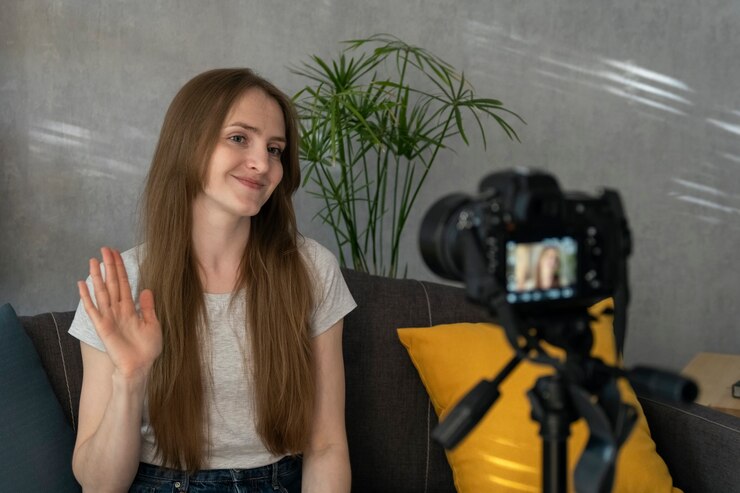As social media continues to evolve, one of the most noticeable trends emerging this year is the shift towards micro-communities and collaborative engagement platforms. Users are seeking more meaningful digital spaces, moving away from public-facing posts intended for broad audiences. At the same time, brands are tapping into micro-influencer marketing, leveraging small yet highly engaged followings to create more authentic interactions. These shifts are not just reshaping how people engage online—they’re transforming social media into a landscape of personal connection, interactivity, and co-creation.
The Appeal of Micro-Communities
Micro-communities, which are small, focused groups built around shared interests, are rapidly gaining popularity. Platforms like YouTube have launched new features, such as community tabs, that function similarly to discussion spaces on Discord, allowing users to participate in more intimate and interactive conversations. Instagram is also promoting niche spaces through pop-up events and tools that encourage smaller-scale interactions. These platforms provide environments where users can have deeper engagement without the distractions of mainstream feeds.
This trend is partly driven by social media fatigue. People are looking for online spaces that offer connection without the overwhelming experience of scrolling through endless streams of unrelated posts. Micro-communities provide a more targeted social experience, catering to specific interests such as travel, lifestyle, or wellness. The personalised feel of these spaces resonates with users who are seeking not only entertainment but also meaningful dialogue.
Micro-Influencer Campaigns: Small-Scale Influence with Big Impact
While traditional influencer marketing still plays a role, brands are increasingly favouring *micro-influencers*—content creators with smaller but highly engaged followings. This shift reflects the value placed on authentic connections. Micro-influencers build trust within their communities by being relatable, fostering meaningful dialogue, and sharing niche interests. Campaigns led by these influencers often result in higher engagement rates compared to those featuring celebrities with millions of followers.
TikTok and Instagram have been pivotal in promoting this trend, with brands encouraging micro-influencers to co-create content that feels genuine. For example, rather than scripted promotions, influencers share real-life moments using the products, inviting followers to join challenges or provide feedback. These collaborative efforts blur the line between brand marketing and community-building, creating an experience that feels organic.
The focus on smaller influencers also aligns with the rise of community-based campaigns. As more brands shift their marketing efforts towards these collaborations, the emphasis is on creating a sense of belonging. Influencers become the bridge between the brand and the audience, making the interaction feel less transactional and more community-focused.
Gamified Engagement and Social Campaigns
In tandem with these changes, brands are also embracing *gamified social media campaigns* to boost user interaction. Instagram and TikTok are at the forefront, introducing playful challenges, interactive polls, and giveaways that require active user participation. These gamified experiences turn engagement into entertainment, encouraging users to tag friends, share posts, or comment to enter contests.
This approach not only increases visibility but also creates a buzz that draws more users into the conversation. The act of participating becomes part of the reward, making users feel like they are contributing to something meaningful. Some brands have even started using interactive tools like augmented reality (AR) filters, further enhancing the immersive nature of these campaigns. TikTok’s Effect House, for example, allows users to create and share AR experiences, which adds a playful twist to product promotions.
Shaping the Future of Social Media
These emerging trends highlight a significant shift in how people use social media. Users are no longer just passive consumers of content—they are becoming active participants in their communities. This shift towards smaller, more meaningful interactions reflects changing consumer expectations, with a growing preference for authenticity, transparency, and personal connection.
For brands, these trends present new opportunities. Businesses can no longer rely solely on polished advertisements and celebrity endorsements. Instead, they need to cultivate genuine relationships with their audience by collaborating with micro-influencers and engaging users through playful, interactive campaigns. Brands that successfully adapt to these changes can foster deeper connections with their customers and create loyal communities that extend beyond the digital space.
Moreover, the integration of commerce into social media platforms makes these trends even more impactful. With TikTok and Instagram offering seamless shopping experiences, users can discover products through interactive content and purchase them within the app. This blend of community engagement and eCommerce not only drives sales but also enhances the overall user experience.
The rise of micro-communities and collaborative engagement marks an exciting new chapter in social media. This trend reflects the growing demand for spaces that foster real connections, shifting the focus from mass broadcasting to personalised interaction. As platforms continue to evolve, the emphasis will be on creating smaller, meaningful digital spaces where users feel seen, heard, and valued.
Brands that embrace these changes by building relationships with micro-influencers, engaging users through gamified campaigns, and fostering community participation will position themselves for long-term success in this evolving digital landscape. Social media is no longer just about reaching the most people—it’s about building genuine connections, one interaction at a time.






